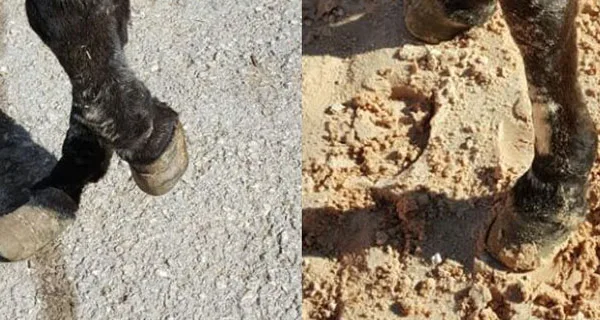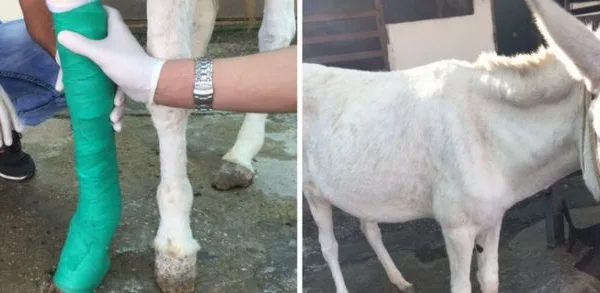Working elephants – getting off on the right foot
SPANA arrived at the Kum Pin Cho camp in Myanmar, where around 30 working elephants and their handlers (‘oozies’) were waiting for checks and treatment from the team.
The logging elephants work for around six months of the year, pulling teak logs through the jungle during the logging season. They receive good care from their handlers, but elephants are still subject to a wide range of health problems that require veterinary attention.
The largest male elephant in the camp, called Tin Hla Ma, was brought to see the team as he was lame. Dr Zaw Min Oo inspected the animal and saw a crack in his nail, which had become infected. If elephants’ nails are not trimmed regularly, they can wear unevenly and this can create pressure points. Eventually, this can lead to the weakening and cracking of the nail, and there is an increased risk of infection, as had happened in Tin’s case.
The team got to work immediately, giving Tin pain relief tomake him more comfortable. They then tackled the infected area, flushing clean the fluid and disinfecting the nail, before providing antibiotics to treat the infection. Over the next five days, Tin would require medication and nail cleaning on a daily basis. After this time, the nail would be sealed with Stockholm tar to waterproof and protect the damaged area.
Tin’s handler, Myo Htet Lin, was asked to train his elephant to lift his feet once he had made a full recovery, in order to make it easier for him to receive routine nail trimming and care in the future.


